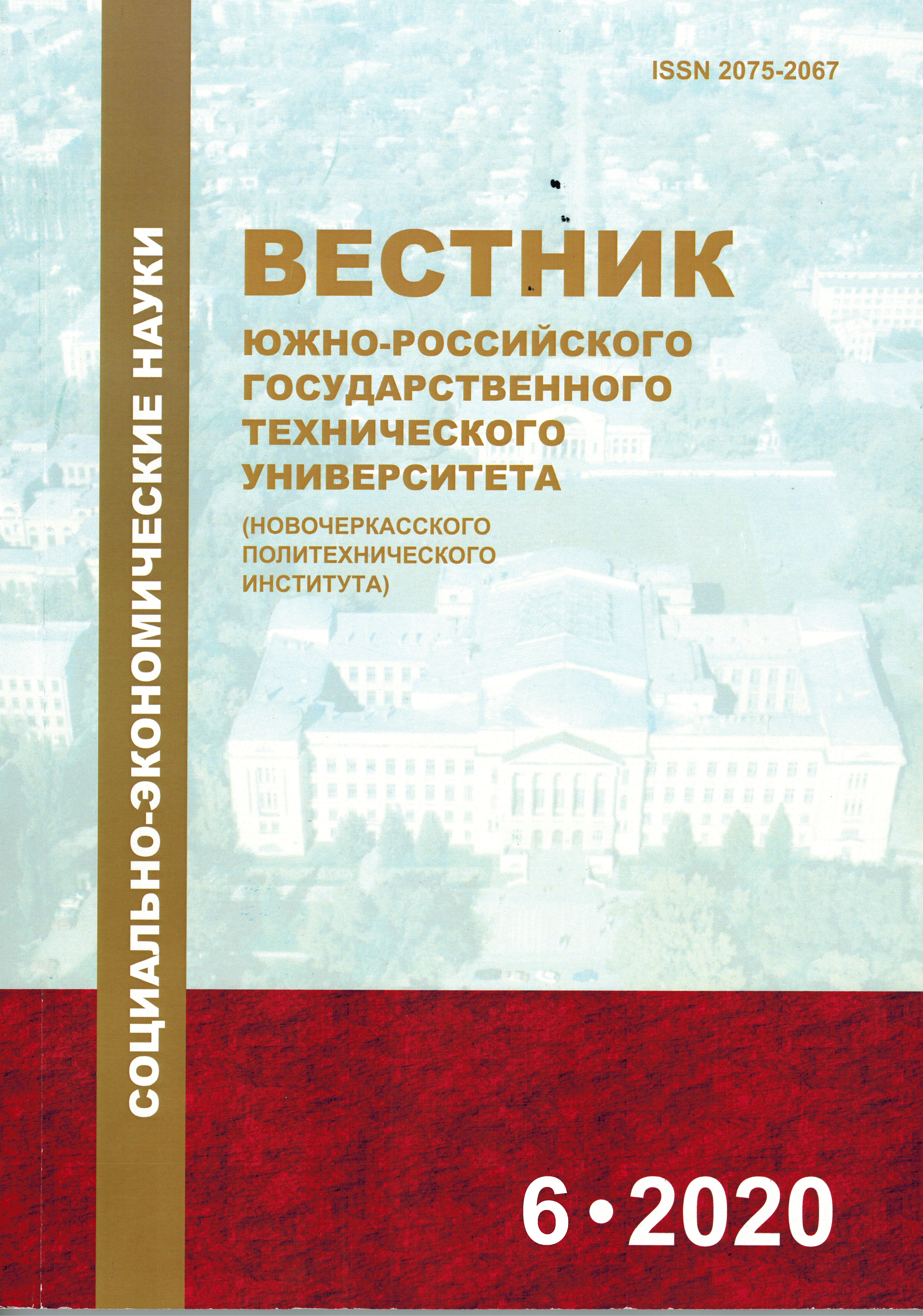ЖИЛИЩНО-КОММУНАЛЬНОЕ ХОЗЯЙСТВО В РОССИИ: СОЦИАЛЬНЫЕ ЗАКОНЫ, ГИПОТЕЗЫ И ТЕОРЕМЫ В ДЕЙСТВИИ
DOI:
https://doi.org/10.17213/2075-2067-2020-6-81-88Keywords:
housing sociology; housing and communal services; condominium; management organization; social law; Thomas’s theorem; Sapir-Whorf hypothesis; broken windows theory; housing class; Dunbar’s numberAbstract
The purpose of the study is an attempt in the genre of a scientific pamphlet to give a sociological interpretation of individual processes and phenomena in the system of housing and communal services in Russia, using well-known social laws, hypotheses and theorems. Housing and communal services are rightfully considered the most controversial branch of the Russian economy and are in the process of constant reform, which explains the relevance of research in this area of various social sciences, including sociology.
The methodological base of the study is the law of separation of functions and specialization, Thomas's theorem and its consequences, the Sapir-Whorf hypothesis of linguistic relativity, the law of elevation of needs, the Wilson-Kelling theory of broken windows, the law of intellectual development, Dunbar's number, the Rex-Moore concept of housing classes, etc. At the same time, at the present stage of housing research, it is seen that the sociological tools for the study of housing and communal problems in Russia are underestimated.
The results of the study reflect the application of sociological tools to explain individual processes and phenomena in the field of management of apartment buildings in Russia. In the course of the research, the results of applying such method are analyzed. Guided by the methodological principle of Occam's razor, it was concluded that such a scientific approach to the study of the sphere of housing and communal services in the framework of housing sociology is quite practical.
The prospect of the study is further sociological analysis using the presented tools at a deeper empirical level in order to verify the presented conclusions, clarify the results, and formulate new hypotheses.
References
Антошкин В. Н. Социальные законы и социальное управление // Вестник Башкирского университета. – 2012. – Т. 17. – №1-1. – С. 594–597.
Бушкова-Шиклина Э. В. Жилищные и социальные классы в России: грани соприкосновения // Управление устойчивым развитием. – 2018. – №3 (16). – С. 40–44.
Валеев А. Р. Современное состояние ЖКХ: недостаток финансирования или отсутствие эффективного контроля? // ЭКО. – 2013. – №12 (474). – С. 130–145.
Гидденс Э. Последствия современности. – М.: Праксис, 2011. – С. 352.
Житомирский Д. Н. Закон Мерфи «Если есть вероятность того, что какая-нибудь неприятность может случиться, то она обязательно произойдет» // Секретарское дело. – 2012. – №10. – С. 69–73.
Луков А. В. Следствия «теоремы Томаса» в условиях становления информационной цивилизации // Знание. Понимание. Умение. – 2006. – №4. – С. 220–222.
Огнев И. А. Реформа ЖКХ в тупике // ЭКО. – 2010. – №12 (438). – С. 93–107.
Самусенко С. А. Учетно-аналитические процессы: от вуалирования отчетности до вывода капиталов // ЭКО. – 2019. – №10 (544). – С. 35–53.
Сергевнин В. А. Роль теории разбитых окон в декриминализации городской среды обитания // Пенитенциарное право: юридическая теория и правоприменительная практика. – 2014. – №2 (2). – С. 112–118.
Сухоруков П. И. Реформа ЖКХ в России – шаг к закреплению правового нигилизма в обществе // ЭКО. – 2007. – №4 (394). – С. 40–50.
Шаховский В. И. Семиотические знаки меняющегося мира в меняющейся коммуникации // Мир лингвистики и коммуникации: электронный научный журнал. – 2015. – №38. – С. 1–23.
Bickman L., Teger A., Gabriele Th., McLaughlin C., Berger M., Sunaday E. Dormitory Density and Helping Behavior // Environment and Behavior. – 1973. – Vol. 5. – Pp. 465–490.
Dunbar R. I. M. Coevolution of neocortical size, group size and language in humans // Behavioral and Brain Sciences. – 1993. – №16 (4). – Pp. 681–735.
Hoijer H. (Ed.) Language in culture // Conference on the interrelations of language and other aspects of culture. – Chicago: University of Chicago Press, 1954.
Litvintsev D. B., Osmuk L. A., Litvintseva G. P. Condos in Russia: Socio-Economic Aspect // New Silk Road: Business Cooperation and Prospective of Economic Development (NSRBCPED 2019). – France: Atlantis Press SARL, 2020. – Pp. 206–2012. – Doi: 10.2991/aebmr.k.200324.039.
Merton R. K. The Thomas Theorem and the Matthew Effect // Social Forces. – 1995. – №74(2). – Pp. 379–422. – Doi:10.1093/sf/74.2.379.
Rex J., Moore R. Race, Community and Conflict. – London: Oxford University Press for the Institute of Race Relations, 1967.
Thomas W. I., Thomas D. S. The child in America: Behavior problems and programs. – New York: Knopf, 1928. – Pp. 571–572.
Wilson J. Q., Kelling, G. L. Broken Windows // The Atlantic Monthly. – 1982.


